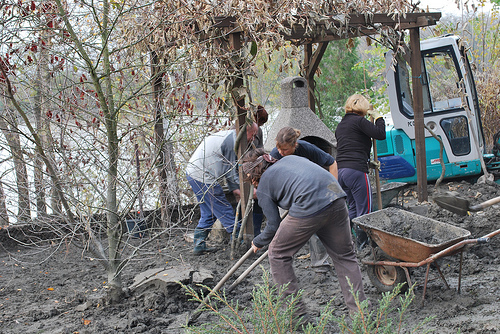

Are you new to graduate school and looking for ways to respond when people around you ask questions about faith? Or searching for some helpful shorthand to distill your years-long study of apologetics into a brief conversation? In this series, Rick Mattson shares some ideas from his extensive work in apologetics. Click here for the rest of the series.
One evening after doing an outreach event at a large campus in the Midwest, I was packing up my gear and a student approached me and said, “I can do good in society without God’s help. I don’t need God in order to be a good person and serve others.”
This is a common objection to faith, and can be summarized as follows: You don’t need God to be a good person and help others.
Problem was, my schedule was tight. I didn’t have time for a long conversation.
What I needed was an “elevator speech”—something short and memorable that would leave an impression on the student and draw him into deeper reflection.
(That’s what this blog series is about. See my two prior posts for examples.)
So I said, “That’s great that you serve! Amen to that. I know you are doing good to others.”
Then I offered my Elevator Reply: “But here is a question I’d invite you to consider: Why serve in your own strength when you could have the power of God on your side, and potentially make an even greater difference to the hurting and the needy?”
That was it. There was no chance for extended dialogue. I never saw the student again.
Had there been time, I’d have delved more into this theological background: “God cares more about the hurting, the needy, the marginalized in our society than we do. But rather than snapping his fingers and making everything better, he calls human beings into service in the power of his Spirit. He calls us to go out and make a kingdom difference in the lives of others. So while we should affirm the great work carried out by persons of other religions or no religion at all, the strongest power for transformation in our society is through humble servants acting in the power of Jesus Christ.”
But since time was short, all I did was pose the question of whether it is better to serve in our own strength or God’s. Sometimes, saying less is actually saying more.
Rick Mattson is a national evangelist and apologist for InterVarsity, speaking at over eighty campuses the past few years. He lives in St. Paul, MN with his family. He studied at Bethel Seminary of St. Paul, MN, where he received his masters in the philosophy of religion. As part of his current duties he serves as evangelism coach for graduate students at several universities. Rick’s a committed family man and serious golfer. He is the author of three books: Faith is Like Skydiving, Faith Unexpected and Witness in the Academy.

Leave a Reply